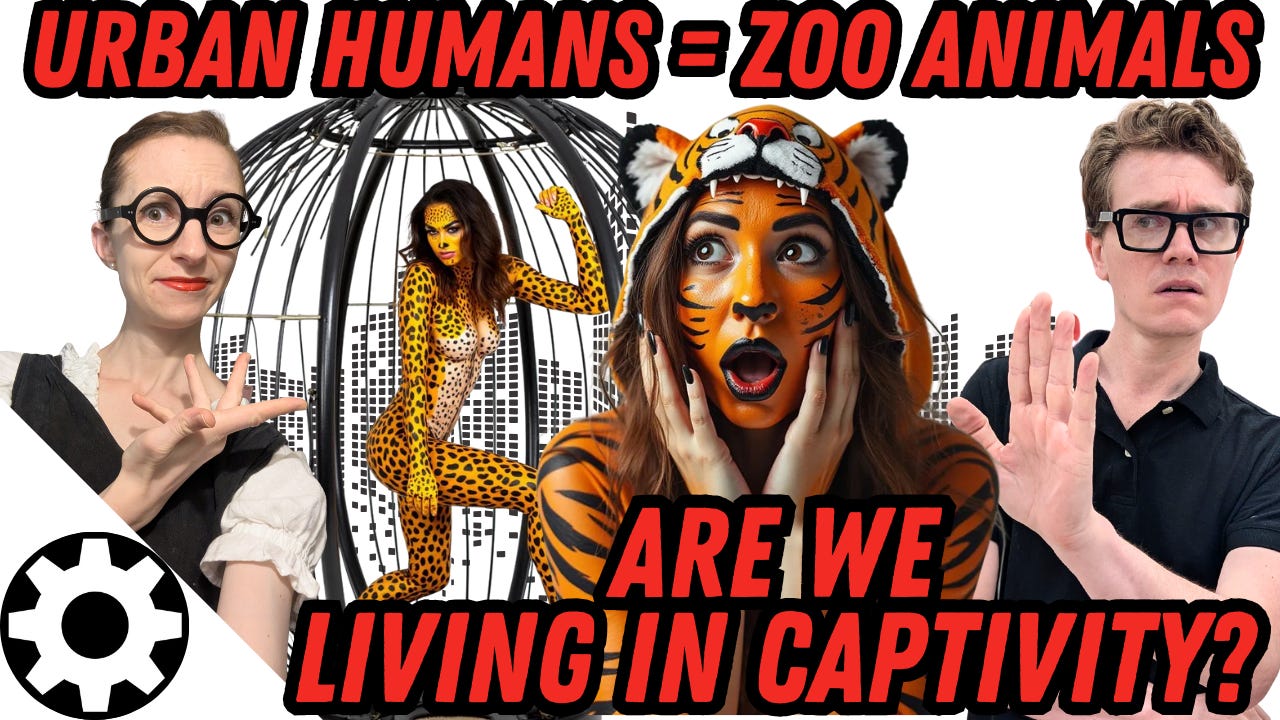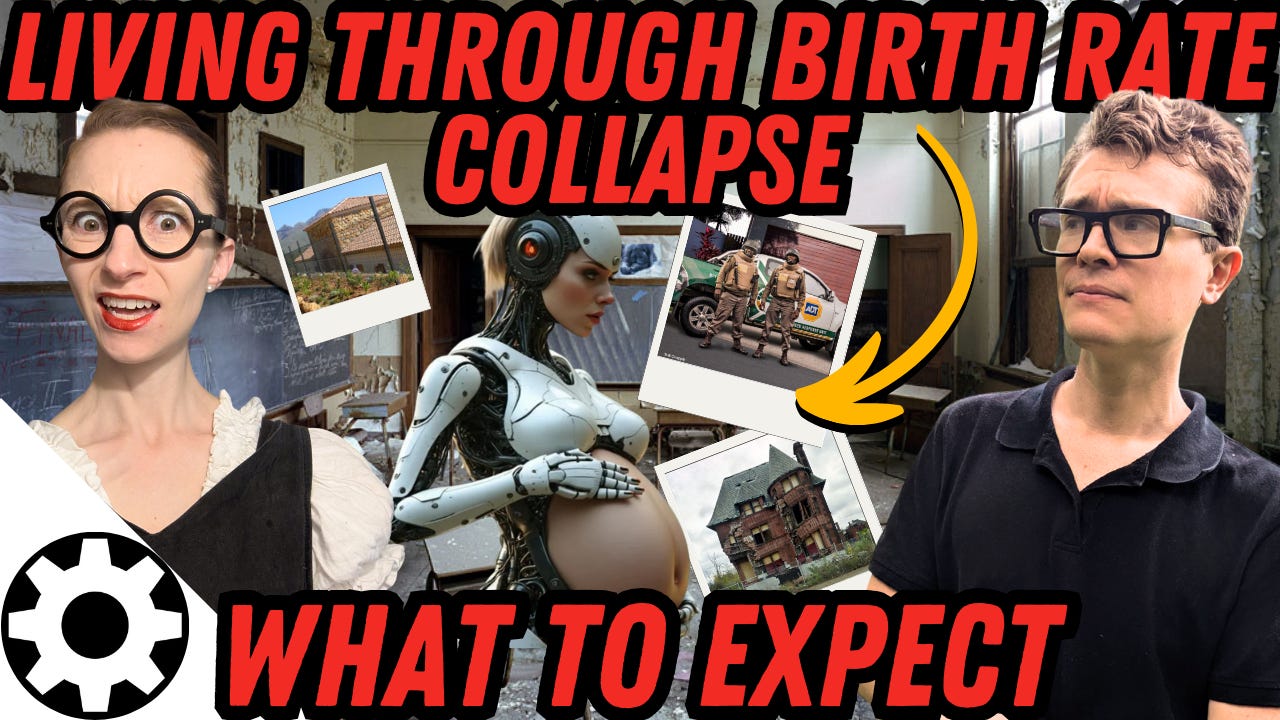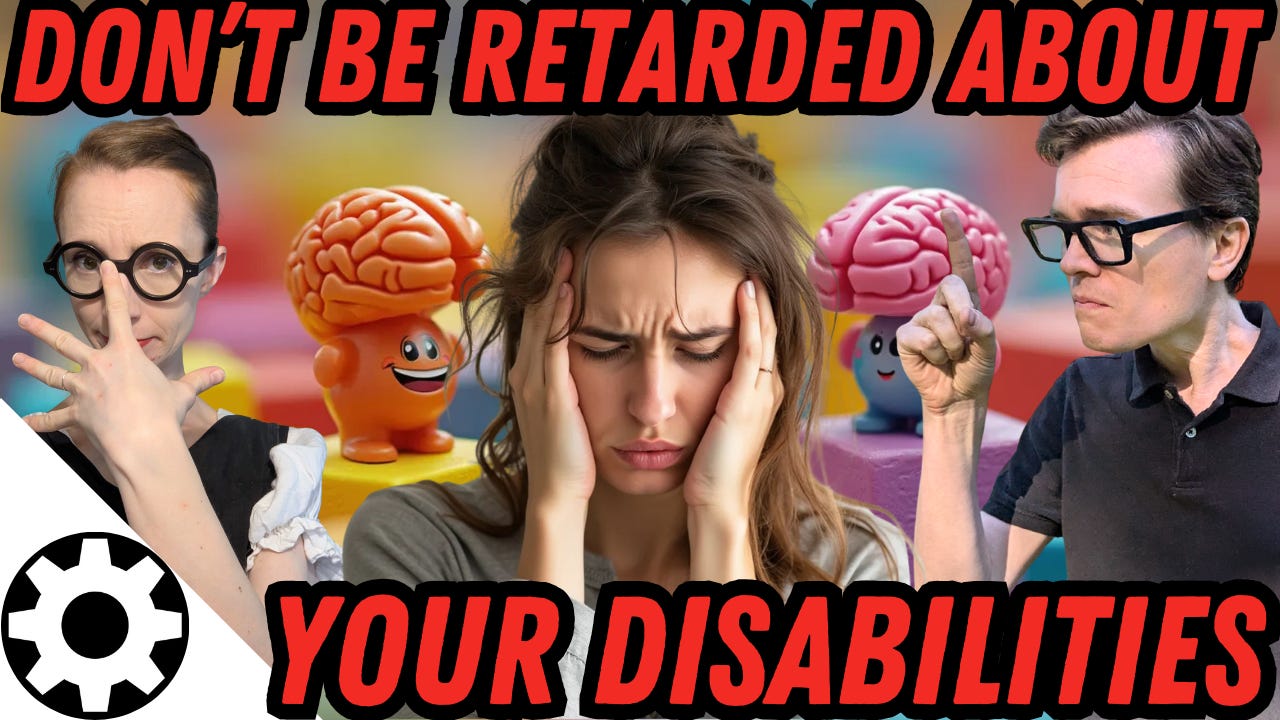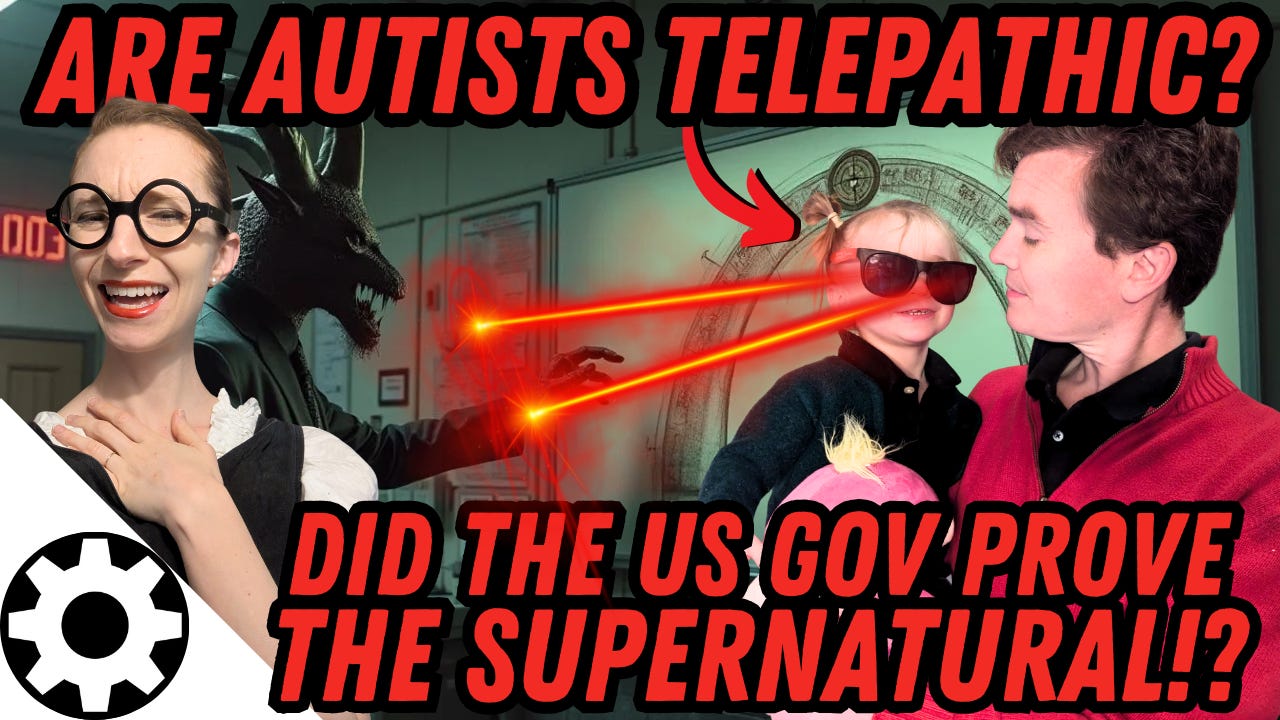Behavior Disfunction Mirroring Zoo Animals (Zoochosis): True Cause of Birth Rate Collapse?
Description
In this episode of Based Camp, Malcolm and Simone Collins explore the fascinating parallels between human behavior in cities and animal behavior in zoos. Drawing on research, personal anecdotes, and cultural observations, they discuss how urban environments can lead to repetitive, compulsive, and sometimes self-destructive behaviors—mirroring what is seen in captive animals. The conversation covers fertility rates, social aggression, learned helplessness, and the psychological effects of modern city life, all with the Collins' signature blend of insight and humor.
[00:00:00 ]
Malcolm Collins: Hello Simone. I'm excited to be here with you today. Today we are going to be discussing an idea that I had that was prompted by something Ruby Yard was saying on what of Alt Hiss, no, which is that if you look at many of the odd behaviors that you see in cities today among humans, many of them look very similar to the types of behaviors that animals begin to make in captivity, specifically mammals in zoos. And a lot of people know the, you know, the mouse utopia experiment, right? And they try to draw a, a line between the mouse utopia use experiment and the ills of modern society and TikTok and falling fertility rates, and it's like, that's all well and good.
But the problem is, is that. We have evidence and you could find it online if you, if you Google about this, somebody did a extremely long blotted post that the Mouse Utopia experiment may, may have basically been faked. Like we don't know for sure. It, it basically, it, it, it was of that period of experiments in like the 1950s when [00:01:00 ] like nobody really cared if it was true or not.
They just cared how, how spicy it was. Yeah. It wasn't like
Simone Collins: pre-validation. There wasn't, yeah.
Malcolm Collins: Go for it. Sure. Yeah, sure. Whatever. The, the, you wanna put this in your backyard? Yeah. It'll be full of dead mice soon. Sure. Whatever. Yeah. Basically what it appears they may have done is run a bunch of trials and then only reported the ones that were, that got interesting results in a very uncontrolled format.
Mm. And, and, and also that that only really gives us like one experiment to look at. But if instead of correlating with mouse utopia experiment, we correlate with well-known and well-documented behavior from zoos.
Simone Collins: Ooh, there's a lot of zoos and there's a lot of zoo animals. Yeah, a
Malcolm Collins: lot of, and this could be upstream of everything to do with fertility collapse because as you know, one of the most, oh yeah.
Simone Collins: Like you, even you, you know, when we used to start in the very beginning talk, talking with media, you talked about people breeding like caged pandas.
Malcolm Collins: Yeah. People know caged pandas are famously hard to breed. They, the pandas [00:02:00 ] don't really breed in captivity. But lots of animals don't breed in captivity.
There, there are many species of wild animals that will almost not breed in captivity, which is odd. You know, people can look at humans not breeding and they're like, it's really weird because like evolutionarily we should be programmed to like, want to do all of this stuff stuff. Well, and
Simone Collins: especially like if you've got nothing but time, what are you gonna do?
But bang each other. What's
Simone Collins (3): going on here?
Malcolm Collins: Yeah. And, and then literally it is very similar to cities. They are in a confined area but natural predators are removed and they are given all the food that they could ever want. Yeah. And they are just, tons of toys are thrown in with them like with us, like being on our phone or something like that.
Yeah. You're given all of the stimulation so they can masturbate these traditional instincts. When I say masturbate an instinct, what I mean is masturbation. As a concept is, is is when you are using a a stimuli that is not the stimuli that a pattern of arousal or pleasure evolved to be triggered by, [00:03:00 ] to trigger that.
Yeah. And so it could be, you know, your. Exploration stimuli from like a video game or something like that. That's a form of masturbation, right? Mm-hmm. Or as we've said before, you know, having pets instead of having kids is a form of masturbating specific child rearing instincts for some individuals.
But anyway, so very, very, very similar circumstances and. I'm just gonna dive into it because I thought it was really interesting and, and I'm, he wasn't the first person to go into this. Somebody wrote a book on this subject. I think it's far back as the 1950s.
Simone Collins: Interesting.
Malcolm Collins: So, yeah.
Simone Collins: Yeah. And I, I, I did a little bit of, of searching around this topic, like wondering what I immediately wondered and I, I actually have a theory as to why this is the case.
Also, it sort of dovetails with what we said, so we can kind of bear our notes and diagnoses. Ooh. Yeah.
Malcolm Collins: Okay. Animals and zoos often exhibit zoos, repetitive purposeless actions due to stress, lack of stimulation, restricted space.
Speaker 6: Oh. [00:04:00 ]
Malcolm Collins: Examples include big cats pacing for hours, elephants swaying or rocking their heads.
Zebras biting non-food objects repeatedly, and walrus is regurgitating food. Oh,
Simone Collins: They're, they're going polemic. This, this just sounds either like teenage girl stuff or autistic person stuff,
Malcolm Collins: right?
Yeah. Yeah. Well, and what's also interesting about these behavior patterns is that they, they, they seem to be species specific, so basically Oh yeah. What we see here is we can see like the, the zebras biting non-food objects or walrus is regurgitating food or elephants swaying or rocking their heads or big cat's pacing.
What this means is that we should expect humans to have a pattern of behavior like this. Actually while I go further, can you see if humans exhibit any behaviors that are zoos, like within extreme captivity, like jail cells or something? Oh. I think that'd be pretty interesting to see if we noted anything like that.
[00:05:00 ] Cities impose similar confinements through small apartments, et cetera leading to repetitive stereotypes like compulsive phone scrolling, nail biting, skin picking or substance abuse binge drinking and overeating. So you could see these behaviors, like these simple addictive behaviors as being something that you see in jail cells and not, or not, sorry, in, in sort of the captive environment.
I'd also note here that there is a common misunderstanding of Zs that people say that monkeys in the wild, like, I don't know, it became like a red pill. Talking point. Don't masturbate. This is not true at all. Monkeys in the wild masturbate a lot. It's well recorded in, in wild monkeys. They may masturbate slightly less than captive monkeys, but I think that's more an issue of the amount of time that they have on their hands.
In terms of like status fights, getting food, everything like that. What'd you find, Simone?
Simone Collins: It says, and I ask perplexity, humans do exhibit behaviors similar to psychosis, abnormal, repetitive, and somewhat self-destructive behaviors found in [00:06:00 ] captive animals when subjective to extreme confinement, such as in prisons or during prolonged hospitalization.
Yeah,
Malcolm Collins: keep your walls. I ask you like what behaviors, what does human psychosis look like?
Simone Collins: Like pacing, rocking, self-harm as a result of stress.
Malcolm Collins: Well, I mean, these are all things we see in city dwellers as well, so I guess this is what makes sense that these are compulsive,
Simone Collins: repetitive, routine self-injury or agitation as coping mechanisms.
Malcolm Collins: Self-injury, the entire trans movement, and then
Simone Collins: also it prolonged isolation in humans is strongly associated with depression, anxiety, panic attacks, mood swings, impulsivity, apathy, withdrawal, and even psychotic system symptoms such as hallucinations and paranoia.
Oh, even cognitive impairments.
Malcolm Collins: Is, I mean, is that not what we're seeing with Trump Derangement syndrome, which is primarily coming from cities?
Kind of, yeah. Yeah.
Simone Collins: Emotional distress and, and also, yeah, and paranoia
Malcolm Collins: and, and hallucinations and, yeah. Wild. And I'll note here, we've mentioned in other videos that, that this incredible low fertility rate and the behavioral issues you see associated [00:07:00 ] with cities are not a new phenomenon. In fact, cities have been a fertility shredder for.
Well, as, as long as we have records of them the, the fertility rate in cities has never been above your population rate except for Jewish populations. That's the only population. Yeah. That, yeah. So just, there's
Simone Collins: always just been this understanding that like the population comes from the rural areas and.
Gets shredded and disappears in the urban areas.
Malcolm Collins: Yeah. And and our theory on that, which we've done videos on, is Jews should be thought of as like a human ethnic group that is such a city specialist, as we've noted something like 98% of Jews live in an urban center.
<s
























